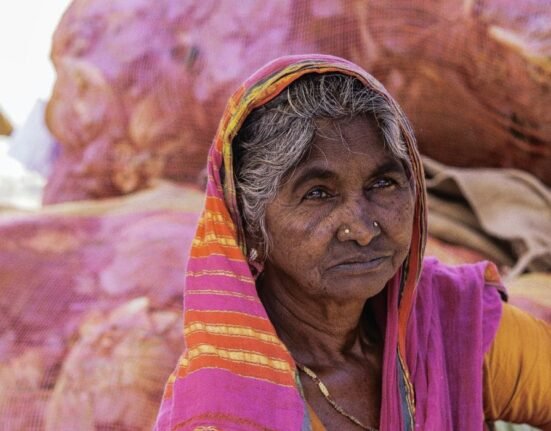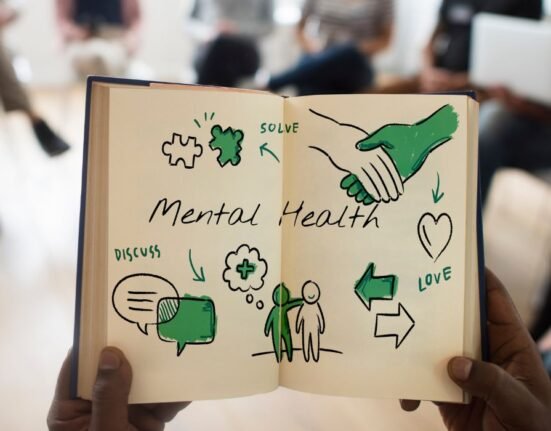Long and back-to-back lockdowns, along with a scarcity of healthcare services, have exacerbated the issue. Since the beginning of 2019, hospitals in Kashmir have seen an influx of mental health condition cases. Patients’ suffering is exacerbated by a lack of facilities in mental health treatment. According to a report, India spends only 1% of its overall health budget on mental health. Since the Covid-19 limits were eased in recent months, the Institute of Mental Health and Neurosciences (IMHANS), Kashmir’s sole dedicated mental hospital, has seen an increase in the number of cases. IMHANS has seen nearly 25,100 patients since January of this year. According to a 2020 study titled “Mental Health in Kashmir: Conflict to Covid-19,” 45 percent of Kashmir’s adult population—roughly 1.8 million people—experienced mental anguish. According to IMHANS data, the hospital’s patient intake increased by 52 percent in 2021 compared to 2018. The number of patients that visited the hospital in 2018 was 52780, which increased to 80686 in 2021. In 2019, 51922 patients were admitted to the hospital, while 64211 were admitted the next year. According to Dr. Zaid Wani, a neuropsychiatrist and Professor at IMHANS in Srinagar, Covid-related mental health issues were common among children, adolescents, and adults, except for those who had already experienced pandemic-like situations in life (in terms of frequent strikes and political turmoil).
The iceberg’s tip
Due to the stigma associated with mental health, mental health specialists believe the increase in patients is just the beginning. Because of the stigma, affected people are hesitant to seek advice from specialists, according to Wani. In Kashmir, mental health issues have a long history. In 2015, Medecins Sans Frontières (MSF) collaborated with Kashmir University’s Department of Psychology and IMHANS to undertake a population-based survey on mental distress in all 10 Kashmir Valley districts.
A depressing investigation
It was shown that 50% of women (compared to 37% of men) suffer from probable depression, 36% of women (compared to 21% of men) suffer from probable anxiety disorder, and 22% of women (compared to 18%) suffer from post-traumatic stress disorder (PTSD). Nadia Ishfaq Nahvi, a clinical psychologist at Kashmir Life-Line, an NGO, says women patients are hesitant to talk about their past because they have experienced the worst since Kashmir’s political unrest began. Sheikh Shoib and Yasir Arafat found in their study ‘Mental Health in Kashmir: Conflict to Covid-19’ that, in addition to decades of political turbulence, the pandemic has added to the strain on Kashmir’s mental health system. They noted that there is an urgent need to expand mental health services in Kashmir, including community engagement, awareness programmes, and mental health rehabilitation services.
Covid’s belongings
According to Dr. Zoya Mir, a counsellor in Kashmir, the increase in mental health problems is an added burden, as patients were unable to seek therapy during the Covid-induced lockdown. According to Dr Mir, deaths caused by Covid-19 in the region have led to the mental disease instances. In Jammu & Kashmir, there have been over 4,700 Covid deaths, with over 2,400 in the Kashmir division and over 2,300 in the Jammu division. The Covid-induced lockdowns in Kashmir were the latest in a long line of such forced strikes and protests. When viewed against a backdrop of widespread anxiety, the cumulative effect is all the more unsettling. We’ve witnessed an increase in anxiety and panic attacks as people’s mobility has been curtailed, leading to loneliness and sadness, according to Dr. Zaid Wani of News9. For nearly three years, since the repeal of Article 370, which was shortly followed by the Covid breakout, all businesses and schools have been closed, forcing people to stay indoors. According to a 2020 poll conducted by mental health professionals in the region, there is a significant prevalence of depression (41%), anxiety (26%), post-traumatic stress disorder (19%), and 47% had suffered some form of trauma.
Professionals in short supply
To deal with the growing number of patients, the Kashmir Valley has been experiencing a scarcity of professional psychiatrists. Jammu and Kashmir has a population of roughly 12.5 million people, according to the 2011 census. However, there are just 41 psychiatrists in Kashmir, with about half of them working in the region. They are primarily involved in hospital teaching in the cities of Jammu and Srinagar. According to data submitted in Parliament by the Ministry of Health and Family Welfare in 2018, the country has less than 900 psychiatric social workers compared to the 37,000 needed, and just 898 psychologists compared to the 20,250 needed. According to international standards, the ratio of psychiatrists to patients should be 1:10,000, however in India, the ratio is 1:2 lakh. According to Syed Mujtaba, a public health lawyer, there is a substantial gap. According to Mujtaba, the gap can be filled by training frontline workers such as AASHA and Anganwadi personnel.
Unemployment is increasing.
Researchers have also noted that a population’s psychological discomfort is influenced not only by a long-running conflict and the Covid-19 lockdown but also by daily stressors such as increased unemployment and financial difficulties. According to the latest data from the Centre for Monitoring Indian Economy, unemployment in Jammu and Kashmir reached 25% in March. This was the country’s second-highest rate (Haryana had the highest at 26.7 per cent) and significantly above the national average of 7.6 per cent. In research from Kashmir, Mercy Corps identified dangers linked with youth unemployment, including feelings of failure, loneliness, lack of social status, postponed weddings, and increasing tensions among disenfranchised youth. The total health budget in the Union Provision for 2022-2023 is Rs 86,200.75 crore, however, the budget for mental wellbeing is only Rs 1,035 crore or less than 1% of the whole budget. Even still, 94 per cent of this sum has been set aside for two federally sponsored mental health facilities.












Leave feedback about this